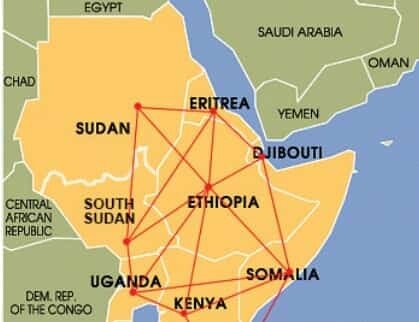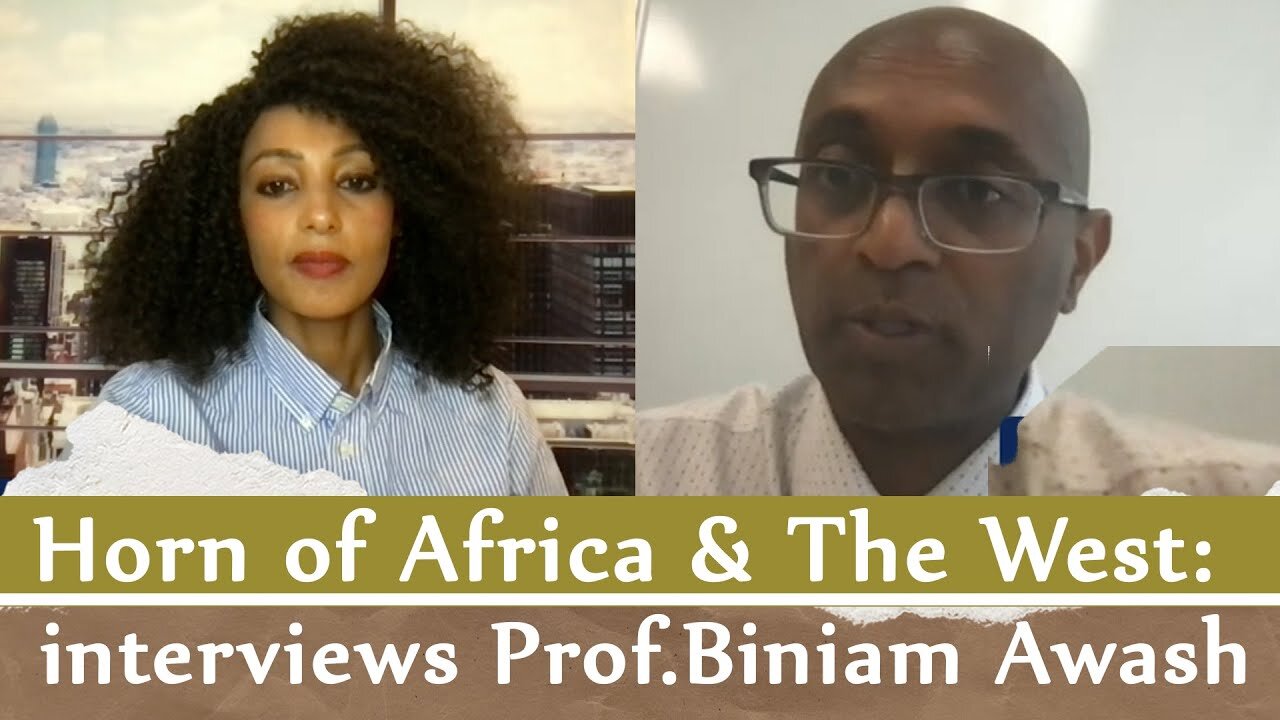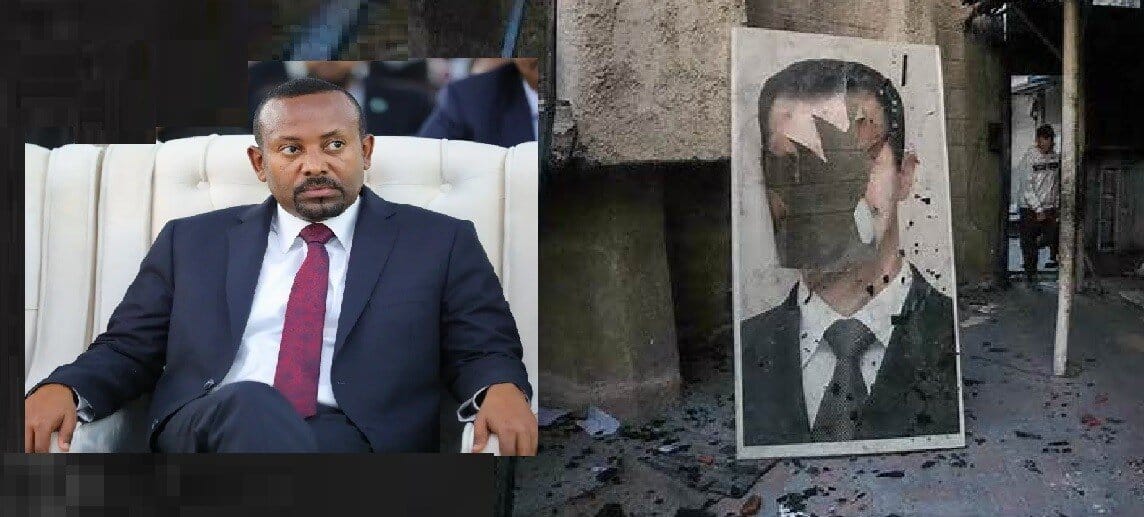Dr. Suleiman Walhad
August 30th, 2024
In the United States, the electorate primarily focuses on domestic issues when casting their votes for presidential candidates, often relegating foreign affairs to a lower priority. The Horn of Africa States, in particular, appears to be of minimal concern to candidates such as Vice President Kamala Harris and former President Donald Trump. This trend underscores a broader pattern in American politics, where local and national issues take precedence over international matters.
Key topics that dominate the political discourse among American candidates include abortion rights, the cost of prescription drugs, the proposal to lower the voting age, the concept of universal basic income, the accessibility of higher education, and immigration policies such as border security. Despite the varying opinions on these issues, there remains a strong adherence to constitutional principles and a commitment to maintaining the integrity of the electoral process. Elections are conducted on predetermined dates, ensuring a level of stability and predictability that contrasts sharply with the political landscape in many African nations, particularly in the Horn of Africa, where leaders often extend their terms beyond the limits set by law.
The American voting system allows citizens to select their presidents, members of legislative bodies, governors, and various other officials, typically favoring candidates whose views align closely with their own. While financial resources undeniably influence electoral outcomes, the electorate’s choices reflect a desire for representation that resonates with their values and priorities. For instance, President Biden was elected four years ago despite concerns regarding his age, while Donald Trump secured the presidency eight years prior, illustrating the complex interplay of factors that shape American electoral decisions.
This year’s elections feature a stark contrast between an ultra-conservative candidate, former President Donald Trump, and a Democratic contender who is perceived as moderate, yet may lean more towards the right than the left, namely Vice President Kamala Harris, who is also a woman of color. This juxtaposition presents a significant decision for American voters, who are familiar with Trump’s tenure as president, while Harris remains an untested figure in that role. The responsibilities of a Vice President in the United States are generally limited, primarily involving a supportive role and readiness to assume leadership should the need arise.
What does a Donald Trump election mean for Africa?
Donald Trump exhibits a notable indifference towards Africa. His previous term demonstrated a tendency to avoid confrontations with long-standing leaders, suggesting that he may maintain a similar approach in his future dealings with the continent. Long-serving presidents in Africa might find themselves feeling reassured by a potential Trump re-election, particularly if it aligns with their aspirations to extend their tenure in power.
The dynamics of America’s relationship with Africa will largely be influenced by its rivalry with China, which appears to have established a more substantial presence in the continent’s diplomatic affairs. American interests have often been shaped by individuals more inclined to disrupt nations rather than foster constructive and amicable relations with African states.
This disruption has been perpetuated by various factions, including lobbyists for specific interests, insurgent groups, and violent opposition movements, which have contributed to instability rather than promoting diplomatic engagement. The cycle of coups and counter-coups poses a significant threat to the continent, and there is cause for concern regarding the representatives of Donald Trump in Africa, as their past actions have not benefitted either the United States or the continent itself.
The Horn of Africa States region is poised to become a pivotal element of Donald Trump’s foreign policy approach in Africa. Its strategic geographical position offers significant advantages for American interests, potentially surpassing those found in many other global regions. A new term for Donald Trump should be characterized by a comprehensive and formal overhaul of his previous policies concerning this area.
Establishing robust relationships with the nations of Africa as a unified entity, rather than fragmenting them into smaller factions as was attempted by the previous administration, is essential for advancing American interests in the region. The prior approach contributed to numerous setbacks in U.S. foreign policy and a noticeable decline in influence compared to China. It would be prudent for Trump to distance himself from those strategies should he seek re-election.
The relationship between Donald Trump and multilateral organizations during his previous term can best be described as strained. There is little indication that this dynamic will improve in the future. Trump may have valid concerns regarding the efficacy of these organizations, which have struggled to deliver results in recent years, particularly since their inception. A thorough re-evaluation or complete replacement of these entities may be necessary to ensure they possess enforceable mandates, especially in the face of aggressive actions by global or regional powers.
.
What would a Kamala Harris presidency hold for Africa?
The election of an American president is fundamentally aimed at serving the interests of the United States. This principle remains steadfast, and thus, Kamala Harris is poised to fulfill her duties to her nation. In this context, her administration will likely adopt a strategic approach to engage with the African continent. As the second largest continent globally, Africa boasts a youthful demographic, with over 1.6 billion inhabitants, predominantly under the age of thirty, necessitating the attention of any significant global power.
Africa is rich in mineral and energy resources, positioning it as a critical player on the world stage. The United Nations reports that the continent is home to 30 percent of the world’s mineral resources, 12 percent of its oil, and 8 percent of its natural gas reserves. This data only scratches the surface, as the vast oceans and deserts of Africa may conceal even more untapped resources, indicating its potential as a future hub for resource extraction and development.
Consequently, it is imperative for any American president to prioritize relations with Africa. The outdated colonial perspectives must evolve, recognizing that the continent is now led by a burgeoning young population that is increasingly focused on education and modern advancements. This shift presents an opportunity for collaboration and mutual growth, emphasizing the importance of fostering a respectful and equitable partnership between the United States and African nations.
Kamala Harris has the opportunity to excel in her role as president, particularly if she chooses to address and amend outdated policies that were established under previous administrations. These policies have inadvertently facilitated increased Chinese influence on the continent. The question remains whether she will consider such unsolicited counsel, and only time will reveal her response to this challenge.
During her tenure as Vice President, Harris made a significant impact during her visit to Africa, where she was warmly welcomed and regarded as a “daughter,” with her presence likened to a “homecoming.” Her itinerary included stops in Ghana, Zambia, and Tanzania, with Zambia holding particular significance as it marked her second visit; she had previously traveled there as a child while her grandfather was employed in the country.
In Ghana, she addressed a large gathering of young people, emphasizing the importance of African innovation and ideas in shaping the global future. In her speech, she stated, “African ideas and innovations will shape the future of the world…. And so, we must invest in the African ingenuity and creativity, which will unlock incredible economic growth and opportunities, not only for the people of the fifty-four countries that make up this diverse continent, but for the American people and people around the world….” This statement underscores her commitment to fostering collaboration and investment in Africa’s potential.
That indeed, if genuinely implemented, poses well for a Harris presidency in Africa. In the case of the Horn of Africa States region, no one knows how she will handle it. There are many unknowns in this respect and in others. It is a wait and see.
Which candidate is, therefore, better for the region?
There is one thing clear, there will not be much difference between the two candidates when it comes to the Horn of Africa States region. It will probably continue to prod on and move slowly in the reform processes towards civility, discipline and beyond the tribe and clan.






















test
Why is the US government so intensely courting the TPLF for almost 50 years. American foreign policy on ethiopia is guided by the policy document which Henry Kissinger produced for the US government in 1972 . similarly Lord Macaulay a foreign policy adviser to the UK government is the main architect regarding foreign policy issues concerning Ethiopia and Africa. Both men have similar views on the issue and these policies are followed to the letter by the US as well as the UK governments to the present day.
Henry Kissinger, while heading the National Security Council in 1972, wrote a confidential report on the future of Ethiopia. Kissinger recommended that the United States should exploit internal tensions in Ethiopia by taking advantage of vulnerabilities that include ethnic, religious, and other divisions. Furthermore, National Security Study Memorandum 200 (NSS200) discussed ‘the necessary threshold for industrial development in Africa should be curtailed’. This establishes best way to preserve the status quo control of the Red Sea as well to counter transnational Pan-Africanism from rising in the Horn of Africa.
Henry Kissinger’s proposal centered around exploiting ethnic, religious, and other differences to maintain perpetual tension as well as conflicts in Ethiopia, transforming the country into a submissive client state. As the last Bastian of independence in Africa, the Ethiopia had to undergo a series of “civilizing efforts” modeled on Western experiences
Macaulay’s approach centers around dismantling the core essence of the nation, namely its spiritual and cultural heritage, and replacing its ancient education system and culture. The aim is to influence Ethiopia to perceive foreign and English influences as superior, leading to a loss of self-esteem, abandonment of native culture, and eventual dominance by external forces. On the other hand, Henry Kissinger’s strategy revolves around exploiting ethnic, religious, and other divisions within Ethiopia to perpetuate ongoing conflicts.
kissingerv and lord macaulay on ethiopia, abren.org
Why the US is supportive of Tplf against the will of Ethiopians is simple to figure out. Tplf is a minority (about 6 million of 120 million). Such a minority group in power would serve American interest better than one democratically elected. In other words, divide and conquer of the colonialist era. Tplf would do the bidding of the US at the same time brutally govern Ethiopians. Won’t there be bloodshed when the people rise up as they did in 2018? Sure. But that is no problem for the US. Look what America did in Iraq, Syria, Egypt, Libya, Yemen, Afghanistan, etc. That’s why Ethiopians should come together to work out their differences (if they would ever do) and work toward a democratic governance.
You hit it right on the nose, Brother Dr. Suleiman Walhad. Some of us may be so naive to think that Good Ole USA’s foreign policy on Africa will change from one administration to another. There could have been modifications due to new incidences in a given country but USA’s longstanding policy towards Africa has been to provide monetary and diplomatic assistance to those that are ready to accept it. So this behooves all African countries to get their houses in good order themselves. Otherwise, all what we heard so far from African leaders have all been cop outs and my dog ate my homework lame excuses. Boy, do they know how to silence, jail, maim and kill their own citizens. Some of them even had the nerve to claim they have the one-dose remedy for COVID-19.